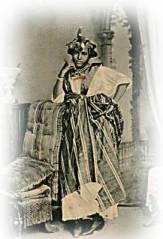About CreoleLinks.com
Barbados genealogists over the years have left Notebooks of their research work in which one will find extracts from original and copied wills and these are indexed at the Barbados Department of Archives and some are at the Barbados Museum. It has been the way those of us who have been genealogists in Barbados have attempted to share this invaluable information with the few who came seeking family history and now through Internet with a broader spectrum of Barbadian descendants who may not even be aware that within their midsts are records that go back to 1637.
In 1987 when I first came across these records I was astonished at this treasure trove which, if anything, needs to be placed under some form of a World Heritage protectorate as I have personally witnessed the loss to the general public of records I once held in my hands.
The documents of the people are their record of themselves and their society which answer all the false reporting and the political agendas of those who use history to distort the truth or to hide an achievement of any one person or group. This is not to discredit the honest research of historians who derived their opinions strictly from the official propaganda and statistics but to suggest that the study of family history researched by laymen is an aid to honest students of history to present in measured terms their views or amend the theories of their predecessors as they see evidence of bias.
As individuals, the records of our forefathers speak to everyday living and how they used or abused the systems they were born into. Their records are not there for our judgment but a prism, not a prison, through which we can see what is required of us. Many will be shocked to find their ancestors listed among the enslaved; and hopefully it will trigger a positive determination.
As descendants of slaves, maybe, we can all in our small way honour those ancestors who were enslaved by supporting those organisations which now combat slavery and provide shelter for abused children and modern-day captives.

Contents